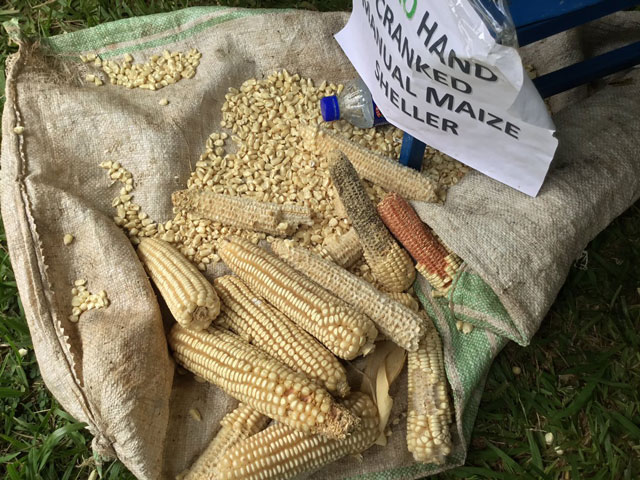
Kampala, Uganda | THE INDEPENDENT | Grain processors and traders have accused government agencies of not doing enough in the fight for quality grain and other agricultural products and exports. It comes as the government intensifies efforts to restore the market stability following the rejections of maize flour on the regional market, especially by Kenya and most recently, South Sudan.
About 100 trucks were blocked from entering South Sudan in May this year and the tension eased after close to four months, with the intervention of the East African Standards Committee. The main reasons cited by the markets are the presence of aflatoxins and high moisture content in the flour.
Ugandan authorities questioned the authenticity of South Sudan’s decision. Despite deeming Juba’s acts unfair, Ugandan authorities opted for a diplomatic approach “because of the importance of the South Sudan market” to the country.
However, UNBS insists that the grain processors and transporters have a lot to do to prove food safety for Ugandans and the export market, condemning how some handle grain in appalling environments.
Speaking at the sensitization meeting on the new initiatives to improve the quality and safety of maize products, Richard Sserwadda, the chairman of Rubaga Grain Millers Association said the the UNBS had focused all efforts on the processors and traders, yet aflatoxins are mainly caused at the farm.
He wondered why UNBS personnel crack down on grain in Kampala, leaving the farmers and primary buyers in the countryside to operate freely.
He also expressed the frustration the traders get when their goods are held for up to a week before the UNBS completes the testing and certifying the sample, especially at the Matugga center which was established recently to handle grain destined for South Sudan.
This, according to him leads to a loss of capital and market, as sometimes the prospective buyers switch to other suppliers for quick supplies. This can lead to transporters avoiding the testing process, he says.
Nannono Sarah, another member of the Rubaga-bases association blamed the extension department of the Ministry of Agriculture for not doing their work. She said, for example, that the ministry gives farmers planting materials but that the officials never go back to follow up on how the farms are doing, giving room to the farmers to do as they wish.
In response, representatives from the Ministry of Agriculture, Animal Industry and Fisheries, admitted that there is a problem at the primary production stages also. Connie Acayo, Assistant Commissioner extension insisted that the buyers and processors contribute to the poor quality by influencing farmers to harvest premature crops, using herbicides. She said, therefore, that the fight against poor quality needed everyone’s effort.
Acayo also said the extension department is highly understaffed, with a ratio of about 1 to 2,500 farmers, which leaves a big gap between the extension workers and the farmers. She however proposed that if the farmers and traders were organised into groups, it would be easier to reach out to them, on top of themselves being able to do some self-regulation.
Paul Mwambu, Commissioner of the Department of Crop Inspection and Certification at the ministry also accused the buyers of contributing to the abuse of standards requirements at the farm level. This is attributed to the lack of organization in the whole value chain, with some form of regulation happening at the last stage, especially grain millers exporters, and/or transporters.
Mwambu said, that if the secondary buyers rejected the maize grain over quality or offered low prices for badly-handled produce, the primary buyers would find it hard to sell and the message would end with the farmers, forcing them to seek advice from extension workers.
The transporters and traders have opened up another place in Gulu town where trucks heading to South Sudan can be parked and samples taken by UNBS for testing. Kabondo Jacob, the national coordinator, of the Uganda Millers Association said the Gulu site was established to cater for grain from areas in the western axis like Bunyoro, West Nile, and Acholi regions.
On the delays at the testing labs, the UNBS Deputy Executive Director for Standards, Patricia Ejalu promised that more labs would be established and staffed to reduce pressure on the current ones.
She said the certification of privately owned labs was going on but that the process takes longer because of the strict scrutiny involved. However, she added that the exporter will have to bear for the four days it takes at Matugga but that it will soon fall to two days.
The concerns of the export markets were re-echoed by internal incidents, according to the Uganda Bureau of Standards, UNBS, including reports of food poisoning in Amudat District in March 2019, substandard COVID-19 relief food items, and reports of food positioning at a school in Nakanyonyi, Mukono district in July.
Ejalu insisted, however, that they will not let up in their operations against standard violations because both the local and export consumers must be protected. She informed them that it was the UNBS stance that has seen more than 90 people apply for certification since early August, while since the COVID-19 relief food saga, the number of certified companies has grown from only four to 400.
Last month, UNBS issued a raft of measures under the maize standards, for exporters and transporters including using sealable trucks, presentation of ownership documents, provision of an assembly point for trucks for sampling, and presentation of a valid UNBS certificate among others.
Exporters are now required to have their product labels clearly showing origin, product name, company name and address, brand name, dates, registered trademark, storage instructions, batch number, net weight, and the statement “food for human consumption,” among others.
*****
URN
 The Independent Uganda: You get the Truth we Pay the Price
The Independent Uganda: You get the Truth we Pay the Price


